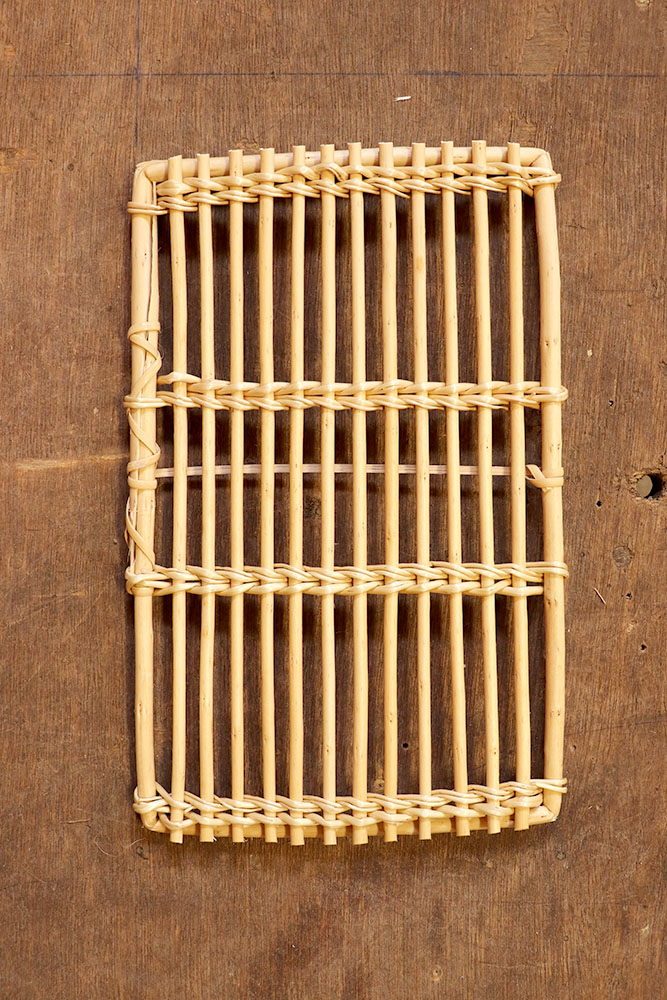Also known as "soul", it is a large strand of wicker, or more rigid wood, using as a framework on which strands of wicker or splint are wound to form the handle. This makes for a more robust handle.

Also known as "soul", it is a large strand of wicker, or more rigid wood, using as a framework on which strands of wicker or splint are wound to form the handle. This makes for a more robust handle.

Tool used to spread the weave to form a pathway, for example for other strands.


The 'pignon' is a part of the weaving that does not go around the basket. There are many different forms.

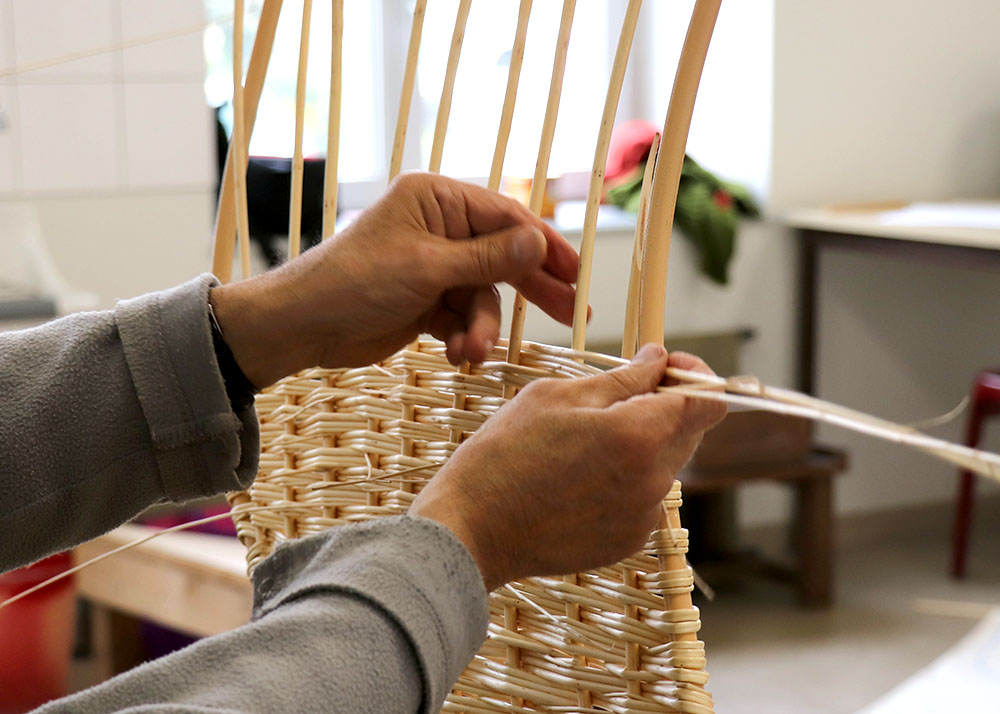
Movement of a strand around the number of ribs prescribed by the weaving method.
Freshly harvested wicker that has not been dried. It is not very suitable for manufacturing because green wicker loses half its volume during drying, which would make the basket less solid.
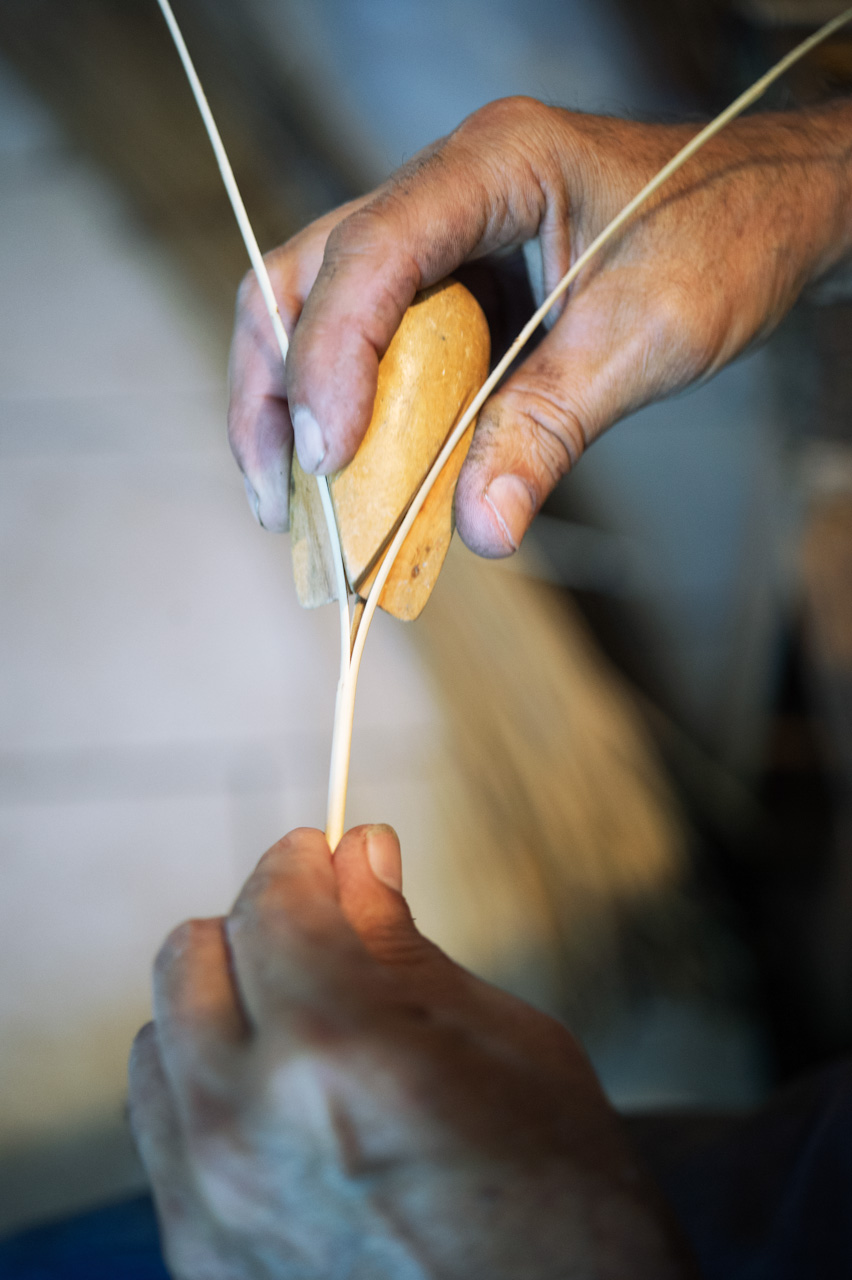
Wicker divided into 2, 3 or 4 equal parts along its length. Manually with a splitter or mechanically with a splitting machine.
The inner part of the rattan vine. The vine is stripped of its bark and then mechanically calibrated to obtain stems of regular marrow. When the gauge is large, the marrow is useful for making furniture. When the gauge is small, in thin strips, it can be weaved.
Machine for making wicker splints mechanically.
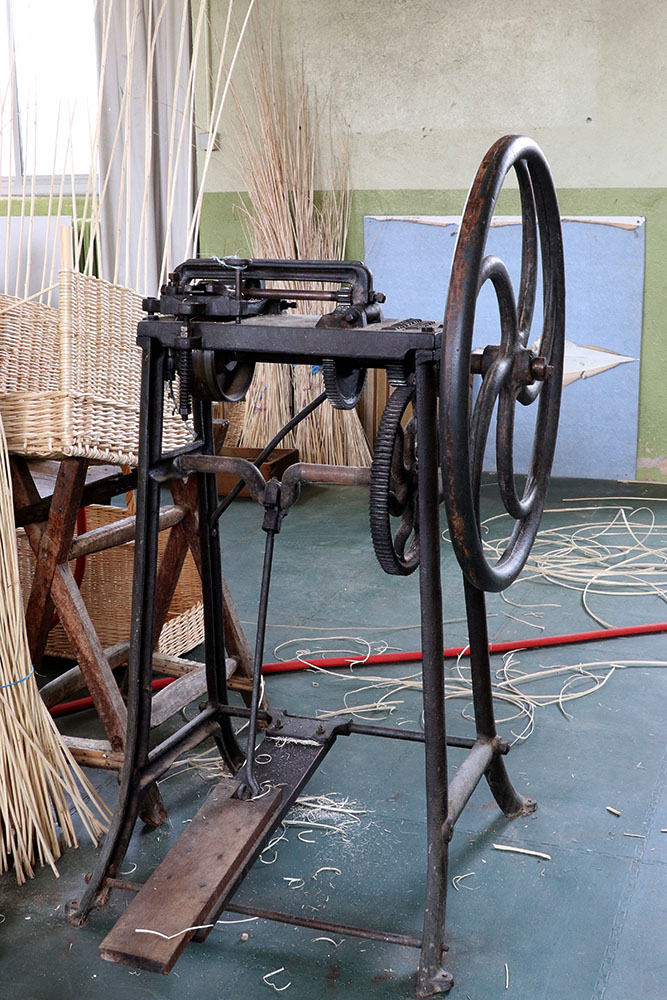
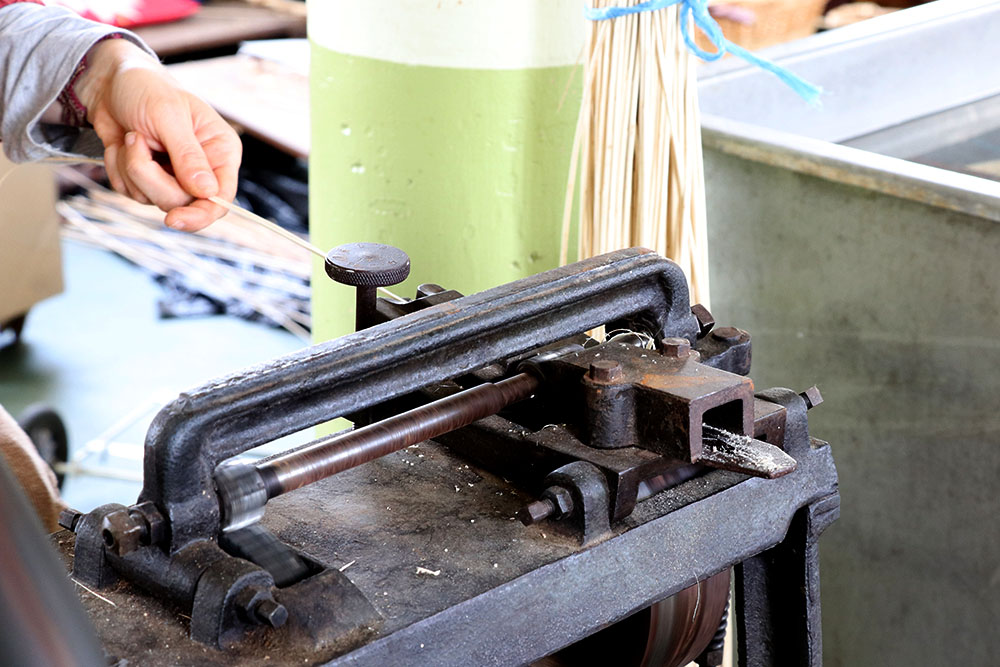
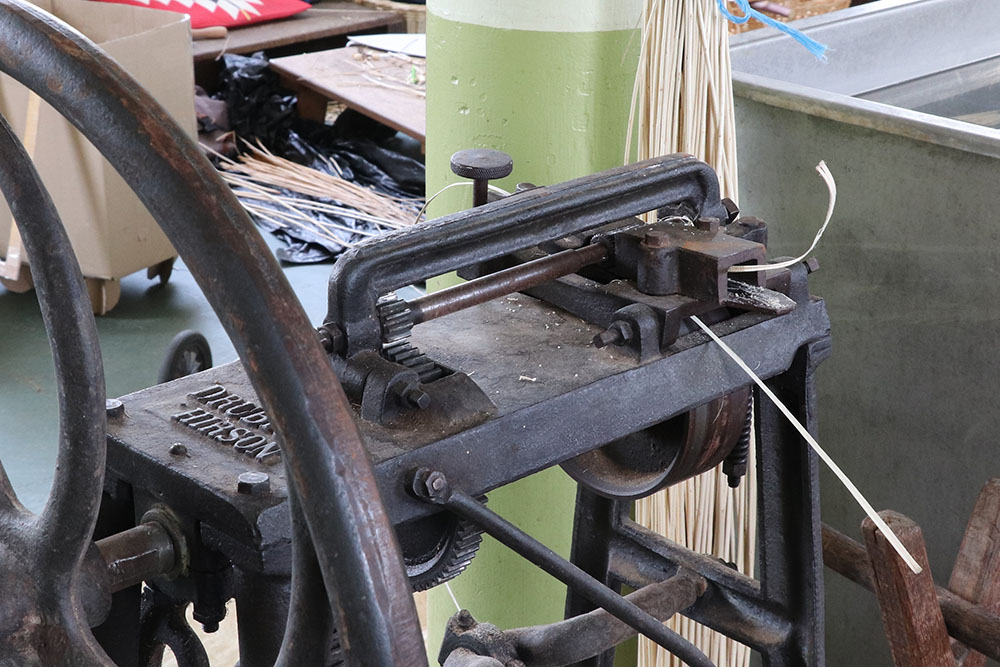
A bottom made from a circular, oval or rectangular shape of wicker (which can be created from a template), crossed by strands hemmed onto this structure, between which one comes to fill in by weaving with twined weaving.

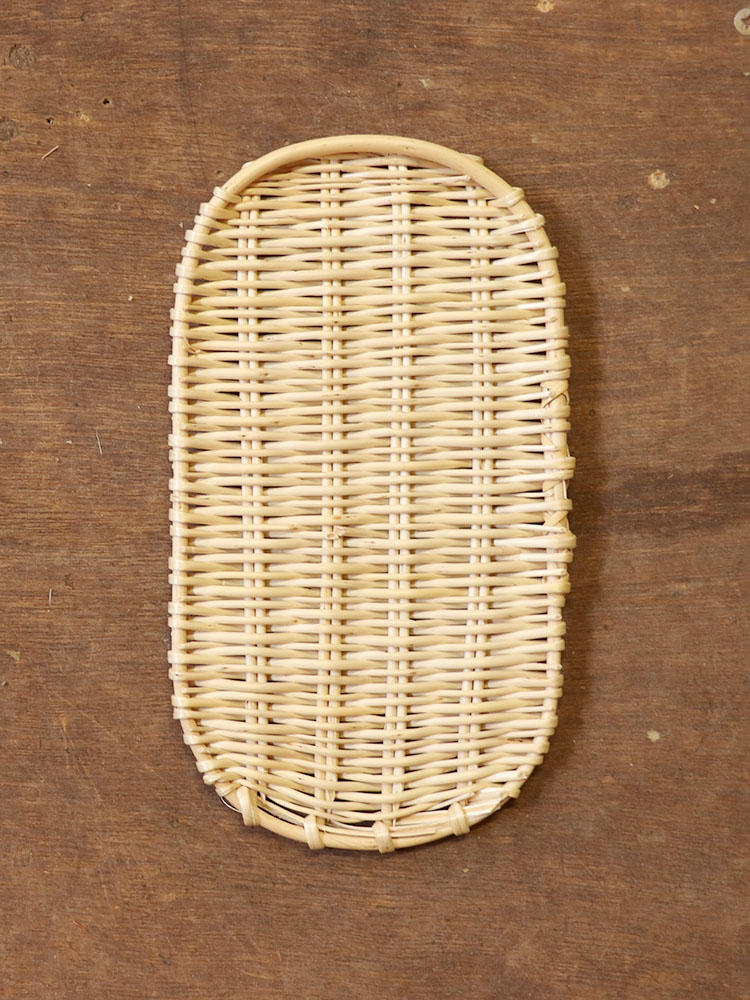

Bottom made of very straight wicker sticks, or wooden slats, held together by traces.

